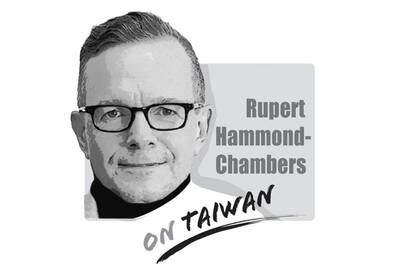There are four friends: a military officer, a civil servant, a public school teacher and a police officer. They started in their respective jobs at the same time, and all four are on the same salary. They make a fixed monthly contribution of 15 percent of twice their salary to their retirement pension accounts. Yet when they retire, the monthly pension of the police officer is NT$10,000 to NT$20,000 (US$303.36 to US$606.72), higher than that of the others. Something in that picture seems wrong.
Recently, legislators from the opposition blue and white camps jointly passed an amendment to Article 35 of the Police Personnel Management Act (警察人員人事條例), raising the maximum “replacement ratio” of retired police officers to 80 percent of their original salary. For retired basic-level police officers, about 80 percent of them could even receive a monthly pension as high as NT$74,544. That is more than a deputy minister might expect to make. That is not just wrong, it is absurd.
When they are still in service, all military officers, civil servants, public teachers and police officers make a fixed monthly contribution to their retirement pension accounts according to the same standard monthly contribution rate. After the amendment, the retirement pension of police officers now exceeds that of the others, and not by a small proportion. That not only accelerates the exhaustion of the government’s pension fund, but also causes a serious impact on the fairness of the pension system, while exacerbating generational inequality.
Many of my colleagues in the public sector are unwilling to retire early due to the wide gap between their salary and retirement pension. However, after the amendment, the gap between the salary and retirement pension of police officers has been greatly narrowed. That would inevitably increase their willingness to retire early. Early retirements might lead to insufficient police numbers, which could in turn affect social order and impact the general public.
Since military officers, civil servants, public teachers and police officers make a fixed monthly contribution to their retirement pension accounts based on the same standard, how could lawmakers from the blue and white camps amend the law to raise the monthly retirement pension for police officers alone? Did they hold any public hearings or fully communicate and discuss with the military officers, civil servants and public teachers?
Once it eventually exhausts the government pension fund, would young police officers still be able to receive their pension in the future?
Yeh Yu-cheng is a secretary at the Pingtung Public Health Bureau.
Translated by Eddy Chang
Having lived through former British prime minister Boris Johnson’s tumultuous and scandal-ridden administration, the last place I had expected to come face-to-face with “Mr Brexit” was in a hotel ballroom in Taipei. Should I have been so surprised? Over the past few years, Taiwan has unfortunately become the destination of choice for washed-up Western politicians to turn up long after their political careers have ended, making grandiose speeches in exchange for extraordinarily large paychecks far exceeding the annual salary of all but the wealthiest of Taiwan’s business tycoons. Taiwan’s pursuit of bygone politicians with little to no influence in their home
In a recent essay, “How Taiwan Lost Trump,” a former adviser to US President Donald Trump, Christian Whiton, accuses Taiwan of diplomatic incompetence — claiming Taipei failed to reach out to Trump, botched trade negotiations and mishandled its defense posture. Whiton’s narrative overlooks a fundamental truth: Taiwan was never in a position to “win” Trump’s favor in the first place. The playing field was asymmetrical from the outset, dominated by a transactional US president on one side and the looming threat of Chinese coercion on the other. From the outset of his second term, which began in January, Trump reaffirmed his
It is difficult not to agree with a few points stated by Christian Whiton in his article, “How Taiwan Lost Trump,” and yet the main idea is flawed. I am a Polish journalist who considers Taiwan her second home. I am conservative, and I might disagree with some social changes being promoted in Taiwan right now, especially the push for progressiveness backed by leftists from the West — we need to clean up our mess before blaming the Taiwanese. However, I would never think that those issues should dominate the West’s judgement of Taiwan’s geopolitical importance. The question is not whether

In 2025, it is easy to believe that Taiwan has always played a central role in various assessments of global national interests. But that is a mistaken belief. Taiwan’s position in the world and the international support it presently enjoys are relatively new and remain highly vulnerable to challenges from China. In the early 2000s, the George W. Bush Administration had plans to elevate bilateral relations and to boost Taiwan’s defense. It designated Taiwan as a non-NATO ally, and in 2001 made available to Taiwan a significant package of arms to enhance the island’s defenses including the submarines it long sought.